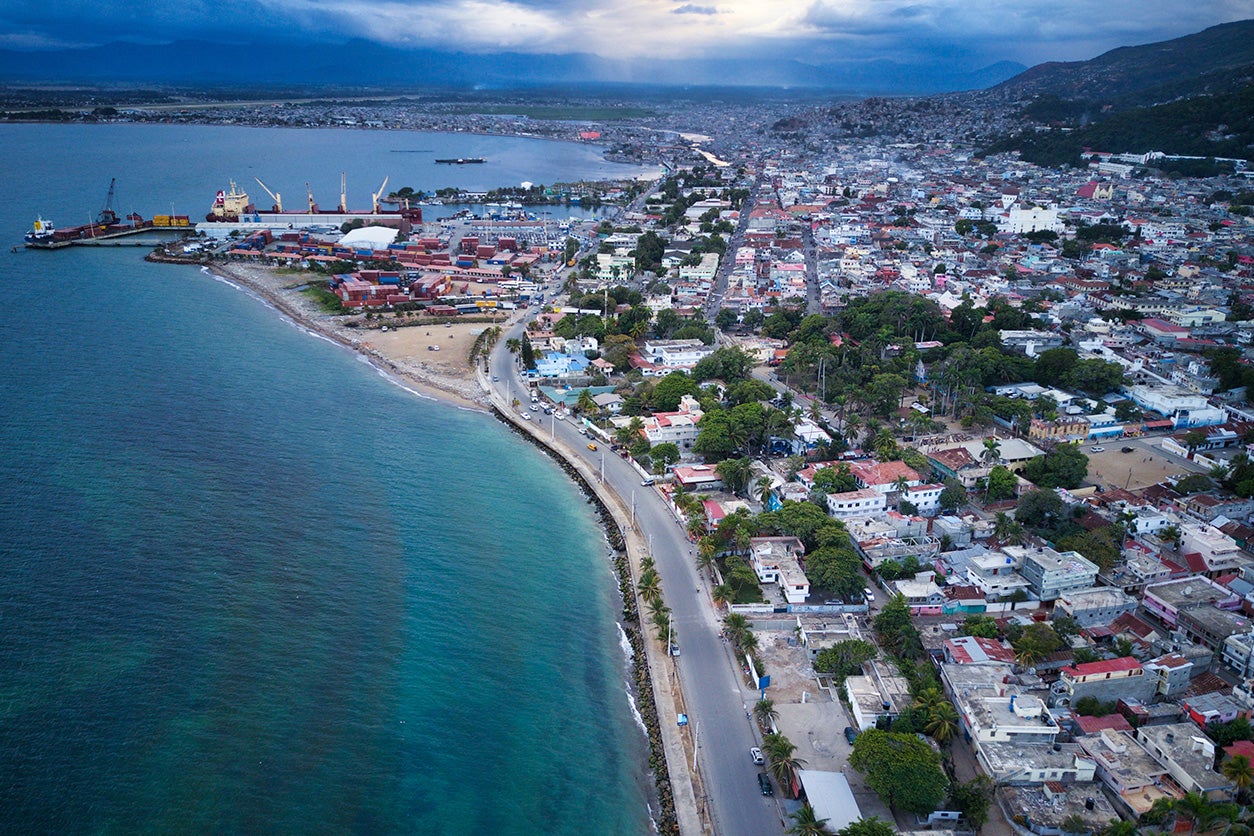Despite the difficulties and challenges that Haiti has been facing since 2019, investment projects continue to be carried out in the country in areas such as access to water, education, health, energy, agriculture and productive infrastructure. In this context, the environmental and social safeguard policies of organizations such as the Inter-American Development Bank (IDB) and the World Bank become even more important since they improve the sustainability of projects in the country by considering the environmental and social risks and impacts exacerbated by the current sociopolitical situation.
This is why the IDB and the World Bank co-organized a forum on environmental and social safeguards that took place on June 7th-10th, 2022. This event connected a network of 60-80 specialists and enabled them to share their experiences, strengthen their knowledge and discuss the best practices and main environmental and social issues that can be found in development projects.
The forum had an operational tone and focused on eight topics that were discussed and presented by specialists from executing agencies and the multilateral banks:
- Occupational health and safety risk management
- Involuntary resettlement
- Prevention and response to incidents of sexual exploitation and abuse
- Waste management, safety and health in construction works
- Monitoring and reporting of environmental and social aspects
- Risk management related to the security context
- Management of the extraction and deposit of materials
- Environmental and Social Management Plan (ESMP) and environmental and social contractual clauses
During this forum, participants identified a series of recommendations to improve the environmental and social sustainability of projects in Haiti, also applicable to other countries in the region. The following were the five action areas proposed:
- Strengthen the procedure for the environmental and social review of tender documents: some tender documents still include environmental and social measures inadequately in the technical specifications. It is important to ensure environmental and social specialists can review all the documents and to improve communication and coordination between the technical, procurement, and socio-environmental teams of the executing agencies.
- Address the security issue of teams in the field: the executing agencies wish to have the support of the IDB and the World Bank to provide psychosocial support and training on security issues that allow them to better manage security challenges in the field. They also expressed that there are fewer and fewer engineers and specialists willing to work in the field due to security conditions, which complicates the execution of projects.
- Identify, minimize and manage physical and/or economic displacement: regarding the resettlement or restoration of the livelihoods of the people affected by the project, it is considered necessary to clarify that the environmental and social policies of the multilateral banks must be applied as soon as the projects are approved by the Haitian government. In concrete terms, this means that basic principles such as compensation at replacement value and payment of compensation before loss of access to assets must be fully respected in the various programs.
- Take into account the impacts of the exploitation of materials associated with the projects: good practices in the exploitation of gravel pits for the extraction of construction materials are still little known and there are no regulations in Haiti, which generates significant environmental and social impacts that are sometimes overlooked in the ESMP and environmental and social monitoring. These bad practices also exacerbate natural risks at the local level (floods, bank destabilization, etc.).
- Guarantee adequate hazardous waste management procedures: hazardous waste management continues to be a widespread problem because there is no channel for the treatment and final disposal of this waste in Haiti (hydrocarbons, batteries, biomedical waste, etc.). The recommendation is to issue clear and practical management guidelines in the ESMP produced during the preparation of operations and to monitor their compliance during implementation.
The forum showed that the environmental and social specialists from the various institutions working in Haiti are fully aware of the challenges that await them, but they are also convinced that, in the current context, actions such as networking, regular exchanges and collaboration in teams will improve the implementation and monitoring of environmental and social safeguard measures, in the hopes of strengthening the sustainability of projects and minimizing negative impacts.
The authors would like to thank the environmental and social professionals, specialists and consultants from Haiti for their active participation during this forum.


Leave a Reply